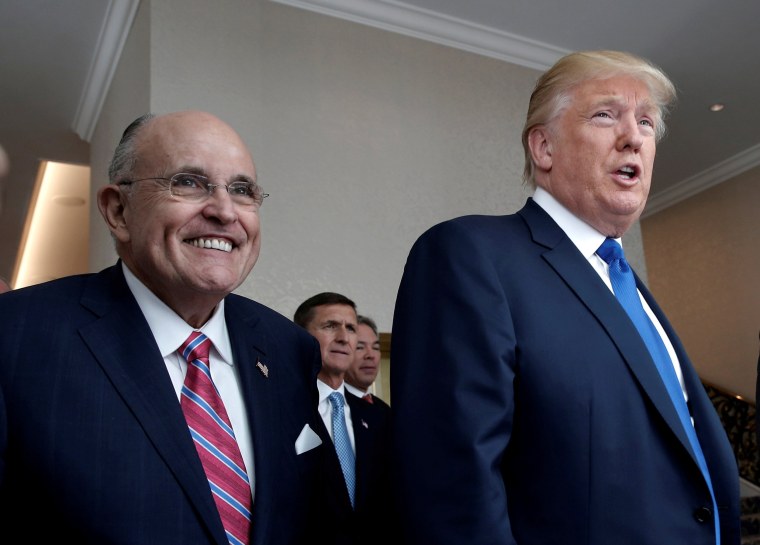As the third week of Donald Trump's defiance of the election results gets underway, the outgoing president is peddling lies at an extraordinary pace, even by his standards. The New York Times noted yesterday that Trump has posted "over 300 tweets attacking the integrity of the 2020 election since election night, unleashing a cascade of false and misleading claims."
One, however, stands out as especially odd.
Dominion Voting Systems has become a particular target of presidential ire. False conspiracy theories that the "glitches" in the company's software changed vote tallies have flourished on social media. But Mr. Trump has escalated those inaccurate claims into baseless allegations that Dominion purposefully "rigged" the election and is a "Radical Left" company. He also tweeted a seven-second video in which a Dominion executive, John Poulos, says, "Components in our products that come from China."
As we recently discussed, Dominion Voting Systems is a company that makes election software for state and local government officials. It's generally not widely known to the public at large, though Trump took steps to change that last week with a hysterical, all-caps tweet.
Apparently responding to something he saw on a far-right television station, the outgoing president highlighted a "report" that Dominion "deleted" and "switched" millions of Republican votes. It was the sort of tweet one might expect from a fringe conspiracy theorist with a handful of Twitter followers, except in this case, the missive was published by the ostensible leader of the free world.
Naturally, Trump's tweet was quickly discredited -- the Cybersecurity and Infrastructure Security Agency at Trump's own Department of Homeland Security has explained that the scenario just isn't possible -- but as the president's response has grown more manic, his fixation on Dominion has gotten creepier.
Part of what makes this line of attack so strange is how little sense it makes. Among Dominion's customers are reliably "red" states that Trump won easily. What's more, Florida and Ohio -- two ostensible battlegrounds -- also use Dominion equipment, and Republicans cruised to big wins in those states, up and down the ballot. If the company were part of a nefarious election plot, it didn't execute its scheme especially well.
It's also strange to see Trump focus on the fact that Dominion equipment includes some Chinese components. The same can be said about the phone the president keeps in his pocket. That doesn't make the president -- or Apple -- a player in some kind of ill-defined election conspiracy.
But that's not all. NBC News reported, for example, on how adherents of the crackpot QAnon conspiracy theory helped this nonsense reach Trump in the first place.
Making matters just a little worse, Rudy Giuliani was on Fox News the other day, spinning a bizarre tale that tied together Dominion, China, Venezuela, Hugo Chavez, and "a big supporter of antifa." After noting that Giuliani's argument is "utterly, utterly bonkers," Jon Chait added:
...Giuliani is arguing not only that ballot machines in numerous states were hacked, but that the software is designed to manipulate totals. And this software was created by an international conspiracy including George Soros, the Chinese Communist Party, and Hugo Chavez (who died in 2013). Glenn Kessler slogs through Giuliani's six-degrees-of-Kevin-Bacon conspiracy web — in short, he is stringing together a combination of tenuous associations (Person X once served on a corporate board with a partner of Person Y) and completely imaginary ones.... He is raving about a secret communist computer program to control the U.S. government.
Donald Trump, who's never met a conspiracy theory he didn't like, is taking all of this quite seriously. You, however, should not.

